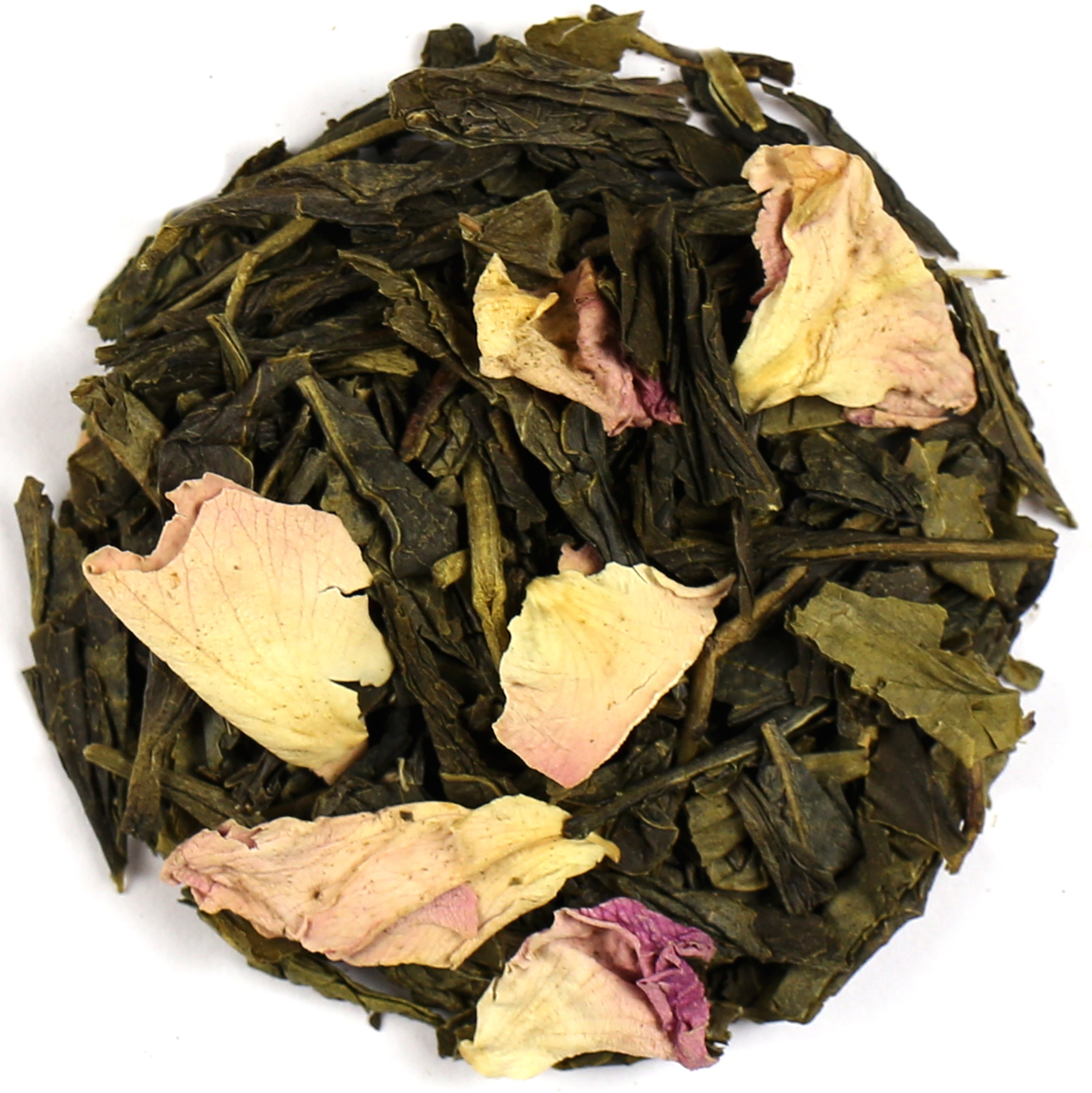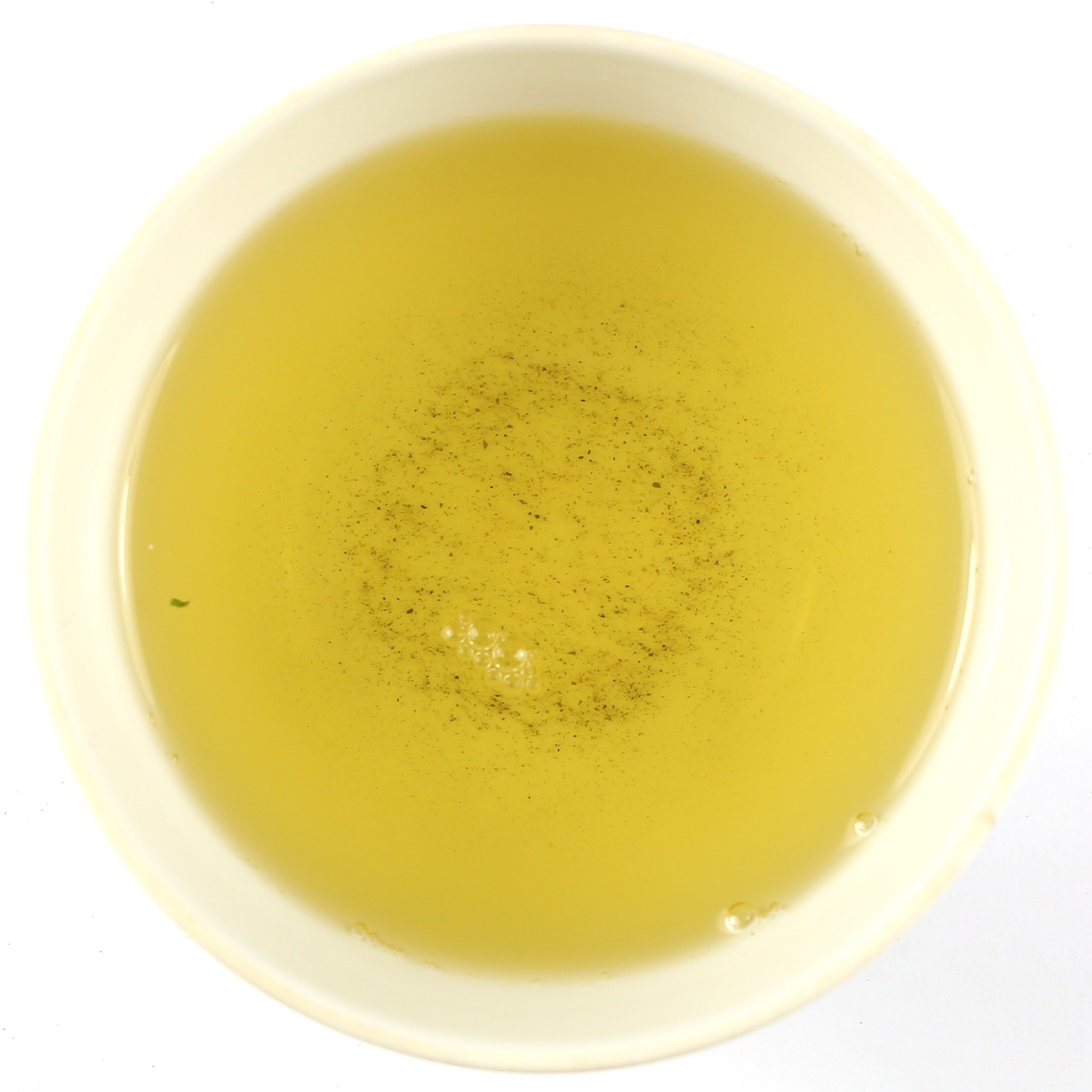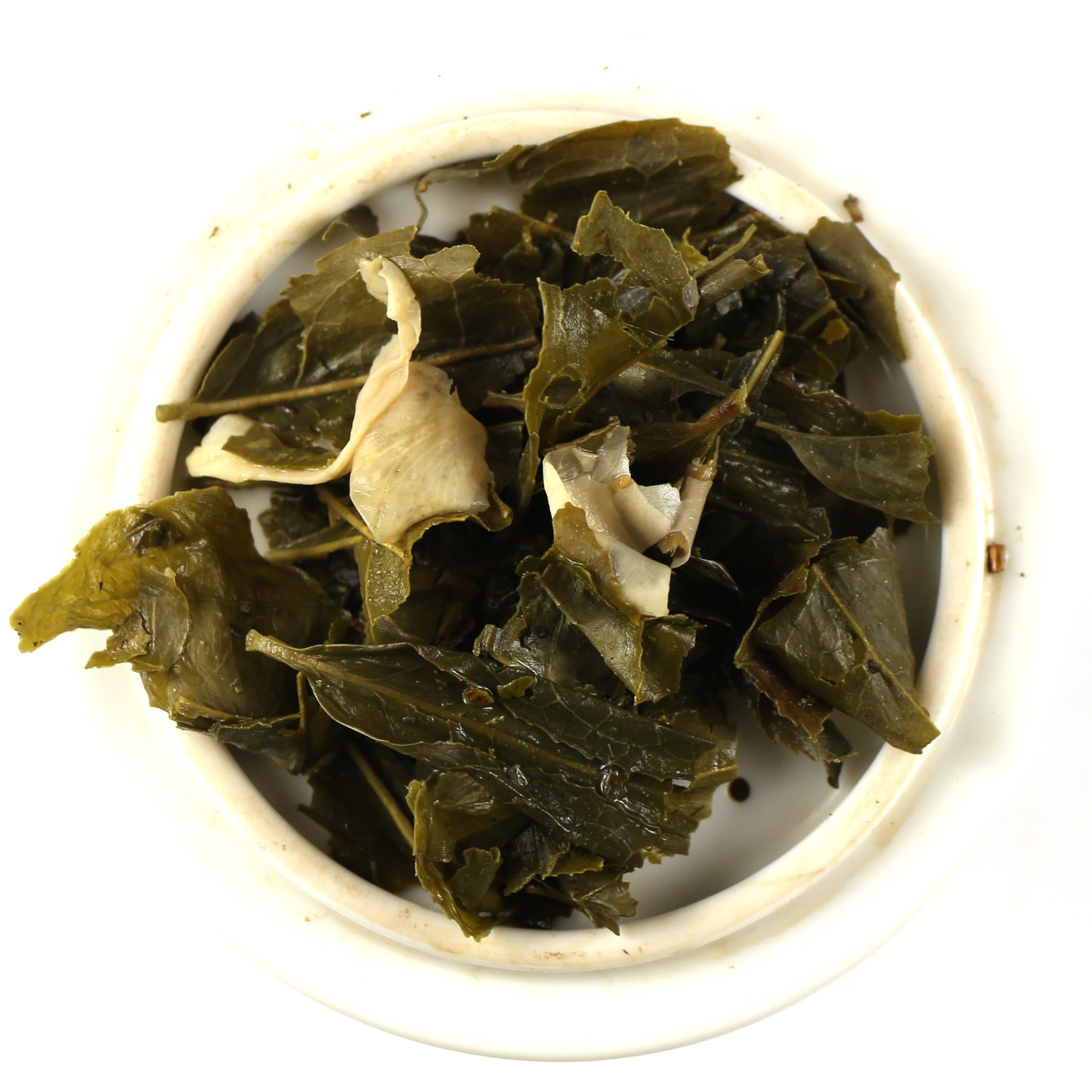Green Tea Brewing Guide

1 Teaspoon
Add 1 teaspoon per person and one for the pot.

70⁰c - 80⁰c
Boil using fresh water, at a temperature of 70⁰c - 80⁰c.

2 - 3 Mins
Steep for 2-3 minutes, depending on personal preference.
About Product
-
Product Description
Japanese Cherry with Flowers Tea is a wholesome, balanced and spiritual experience. It evokes vivid images of springtime in Japan with every sip. Imagine the cherry blossoms dancing in the wind while you enjoy this nourishing infusion. Nothing brings a sense of peace quite like this Tea.
For this beverage, we use the finest quality Japanese Green Tea adorned with beautiful rose petals. It’s notably smoother than its Chinese counterparts owing to its unique processing. When brewed, it creates a slight sweetness with, as its name suggests, distinct notes of cherry.
About Japanese Tea
According to some records, two Buddhist monks introduced Tea to Japan during the 8th Century CE. Soon after, in 729 CE, Emperor Shomu (聖 武) served Japanese Green Tea at a special Buddhist ceremony. But its initial popularity was short-lived. For 400 years, Japanese Tea was all but forgotten. To this day, historians can’t agree why this occurred, though there are a few theories.
The second time Tea arrived in Japan had an everlasting impact. Again, its introduction was through Buddhism, this time through a Buddhist monk named Eisai (栄西; 1141-1215 CE). In 1211 CE, Eisai published a book entitled “Kissa Yojoki – How to Stay Healthy by Drinking Tea”. This was likely the first Japanese reference to Green Tea benefits. In one extract, it read:
“Tea is the ultimate mental and medical remedy… [it] has the ability to make one’s life more full and complete”.
In 1214 CE, Eisai introduced Tea to the Japanese Samurai. Soon after, not only the Samurai but also the Japanese Shogun began enjoying Green Tea. Throughout the 17th and 18th Centuries, it continued to increase in popularity. Today, 78% of Japan drinks Green Tea.
Useful Information
Type of Tea: Green Tea.
Origin: Japan.
Brewing Instructions: Brew with fresh water at temperatures between 75 and 80 degrees. Infuse for 2 to 3 minutes, being sure not to burn or over-brew the leaves.
How to Serve: This beverage tastes best served without any accompaniments.
Tasting Notes: This Tea has a sweet yet subtle profile, a combination of grassy, floral and fruity notes.
Colour in Cup: Green liquor, light in tone.
Health Benefits of Japanese Cherry with Flowers Tea
A Green Tea antioxidant called Epigallocatechin gallate (EGCG) can improve brain function, according to a study conducted at the University of Basel, Switzerland. The leading researcher, Prof. Stefan Borgwardt from the Psychiatric University Clinics, has the answers. He found that consuming extracts of Green Tea increases the brain’s effective connectivity, which refers to the causal influence that one brain area exerts over another. This research suggests that Green Tea could potentially reduce the risk of developing Dementia and Alzheimer’s Disease.
-
Delivery Information
We offer reliable delivery services through Royal Mail to ensure that your orders reach you on time.
Here are the main points you should be aware of:
- Standard UK Delivery: £3.95 excluding delivery charge.
- Delivery Times: Orders are processed and dispatched within 2-5 working days but they may take longer during busy times. It is worth noting that all our orders are packed by hand in order to maintain the quality.
- Free Delivery: We are delighted to provide free shipping for UK orders over £35*. Moreover, customers from Europe can enjoy free shipping for any purchase above €75*. Furthermore, we offer free delivery in the USA for all purchases exceeding $125*. Please note terms and conditions may apply.
- Tracking: When your package is sent you will receive a tracking number via email so as to keep tabs of its progress.
International Shipping
We do ship worldwide meaning our products can be accessed by anyone around the world.
Here are some important details:
- Delivery Times: International deliveries vary based on destination, generally taking between 7-14 working days.
- Shipping Costs: International shipping costs are calculated at checkout based on your location and weight of your order. View full delivery charges for your location.
- Customs and Import Duties: Remember customs or import duties may exist depending on regulations in your country; these charges are borne by the customer.
Returns Policy
Your satisfaction is our top priority, however if for any reasons you’re not completely happy with your purchase, simply follow our returns procedure:
- Eligibility: Items returned within 30 days of receipt must remain unopened and in their original condition.
- Process: In order to return an item contact our customer service department using your unique order number after which detailed instructions will be given concerning returning them back to us securely.
- Refunds: Our aim is to refund you within 5-7 working days upon successful reception of returned goods. The refund amount will be credited to your original payment method.
For any other Enquiries or help please contact our Customer Support Team always at your service.
-
Product Reviews

 Loose Leaf Tea
Loose Leaf Tea Pyramids
Pyramids Tea Bags
Tea Bags Africa
Africa Assam
Assam Ceylon
Ceylon Chinese
Chinese Darjeeling
Darjeeling European
European Indian
Indian Japan
Japan Nepal
Nepal South East Asia
South East Asia Ayurveda Tea
Ayurveda Tea Black Tea
Black Tea Chai Tea
Chai Tea Flowering Tea
Flowering Tea Fruit Tisanes
Fruit Tisanes Green Tea
Green Tea Herbal Tea
Herbal Tea Matcha Tea
Matcha Tea Oolong Tea
Oolong Tea Organic Tea
Organic Tea Pu erh Tea
Pu erh Tea Rooibos Tea
Rooibos Tea White Tea
White Tea Asian Coffee
Asian Coffee Caribbean Coffee
Caribbean Coffee Central American Coffee
Central American Coffee South American Coffee
South American Coffee Coffee Blends
Coffee Blends Decaffeinated Coffee
Decaffeinated Coffee Espresso Coffee
Espresso Coffee Ethically Sourced Coffee
Ethically Sourced Coffee Flavoured Coffee
Flavoured Coffee Organic Coffee
Organic Coffee Single Origin Coffee
Single Origin Coffee Chocolate 1
Chocolate 1 Chocolate 2
Chocolate 2 Chocolate 3
Chocolate 3 Chocolate 4
Chocolate 4 Chocolate 5
Chocolate 5 Chocolate 6
Chocolate 6 Chocolate 7
Chocolate 7 Chocolate 8
Chocolate 8 Chocolate 9
Chocolate 9 Loose Tea Filters
Loose Tea Filters Tea Accessories
Tea Accessories Tea Bricks
Tea Bricks Tea Caddies
Tea Caddies Tea Caddy Spoons
Tea Caddy Spoons Tea Gift Ideas
Tea Gift Ideas Tea Infusers
Tea Infusers Tea Strainers
Tea Strainers




